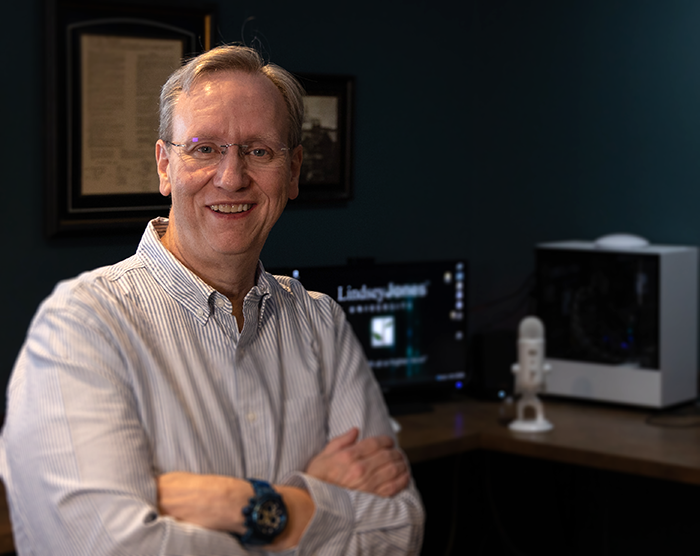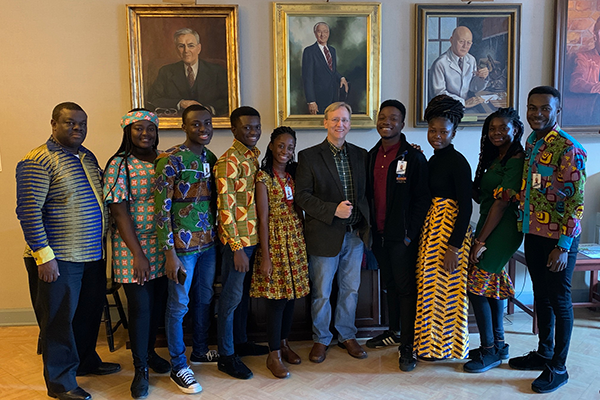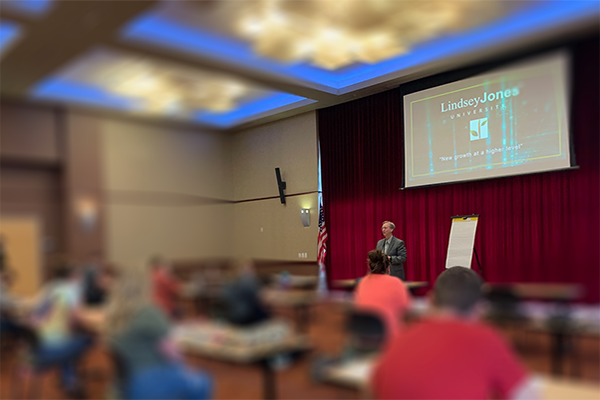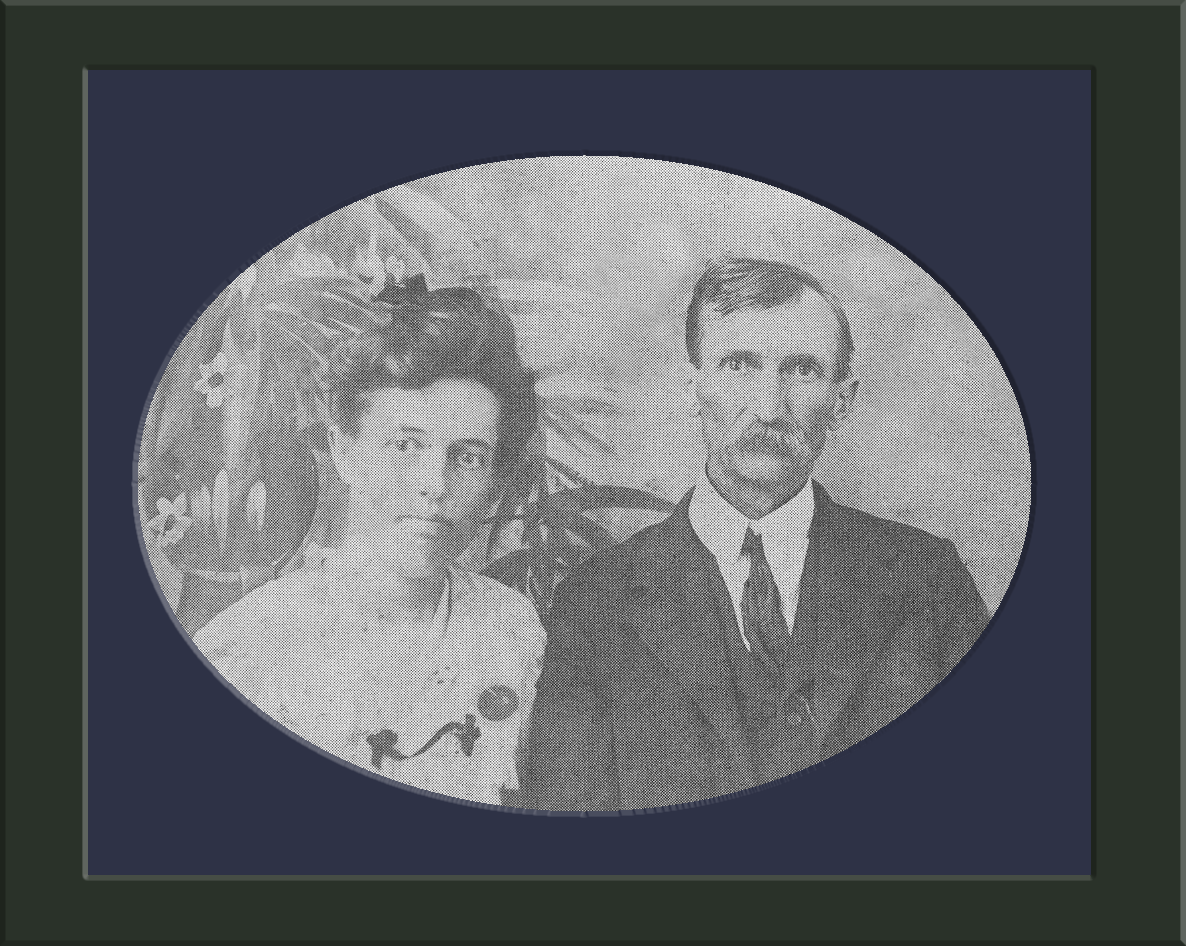Inside the Mind
Prone to laughter, Dennis Stanley has a mind that is a bit surprising once one comes to know the internal forces that propel him. He serves as chair of the Nadines Jones Foundation, the chartable organization he founded, as well as the chief executive officer of LindseyJones University, an online educational facility of which Dennis is principle author and a director of student instruction. He has a unique approach to teaching that defys the normal academic ways of instruction in favor of a more practical, critical thinking methodology. His style changes the game for many who study under him. Having authored a number of works related to beside care as a respiratory therapist, achieving effective multidisciplinary care teams in hospitals, and pushing healthcare education beyond its boundaries, Mr. Stanley seems to live the life of more than one person, though he will never admit to it. .
Dennis Stanley, certainly takes life seriously, but he is a man that leans toward humor regarding himself and the world around him while constantly maintaining serious attentiveness and pressing assertiveness that keeps his creative engine running. Although he has accomplished much in his life, there appears to be something inside him that is unsettled. He takes very little satisfaction in his his successes or looks back and rests - there is always a sense that he is reaching for something more. Despite the diverse set of interests in his life, Dennis Stanley's motivations seem to arise from a few common drivers.
It does not take much to get this creative man talking about what excites him. In his heart, Mr. Stanley expresses that he feels greatness lies dormant is most of us and must be awakened. He will explain that the potential people have is far greater than most can imagine and most of his endeavors concentrate on helping others release their pent-up billiance.
One might consider him deeply religious in this thoughts as Dennis Stanley expresses a feeling that all humans have a divine origin. He suggests that most can at least vaguely sense the truth of their spiritual past and feel that there is something greater inside than they understand. "Many people,"" he says, "languish inside, wondering how to discover more about that latent personal power and how to draw upon that hidden well of strength."
"People know that there is something innately wonderful inside themselves that is supposed to come out," Stanley futher states, "but they don't know what potentials they have or how to bring those higher characteristics out of themselves." He further offers, "To me, the most amazing potential that we all have is the ability to imagine something in our minds and then make it materialize. We can literally create something where nothing before existed."
Another surprising charactristic is the intensity of which he feels extrememe ownership of everything that happens in his life - the good and the bad. He cannot see himself a victim of anything even when the circumstance shows otherwise. This means when things go wrong, he readily assumes responsibility.
"The world would like to convince its inhabitants that when things go wrong, it is the product of something beyond our control," Stanley asserts. "Viewing one's current state as the product of decisions made by others or as a product of random luck undermines the potential in people."" He adds, "If you think about it, the most depressing thought is that some one else is the reason for our failings." Mr. Stanley expressees that if we can look ourselves in the mirror and recognize that we are the reason we are were we are, that we are who we are, that is the best news of all. Stanley even suggests that we should take joy in that truth because it means we have the abilty to change everything."
Mr. Stanley says, "How depressing a thought to feel that everything negative in our life is becasue of some one or something else. Because we cannot control others, this way of thinking leads to the greatest kind of despair. The good news is that it is not true. Althouth it takes courage to accept the blame (reponsiblity) for everying in our lives, ownning every ouctome is empowering beyond belief - not because we instantly know how to meet all of our challenges, but beause we know we do not have to depend on the choices of others to change." Stanley contiues, "I believe we are being that can make things happen and express our lives in a way we want, no matter how long it takes to figure something out. Although we may not be able to change everything at once, we remain the master of ourselves and slowly and surely our divine self arises from the dust. It all begins with with looking at one's self and one's circumstance and admitting that we are the exact reason that we are where we are in life...or in this situation." Stanley suggests even when we are a victim at the hand of someone else, we are still the master becasue we get the choice to rebuild and have access to divine power to do so.

Dennis Stanley, BS RRT-ACCS, NPS, CPFT



